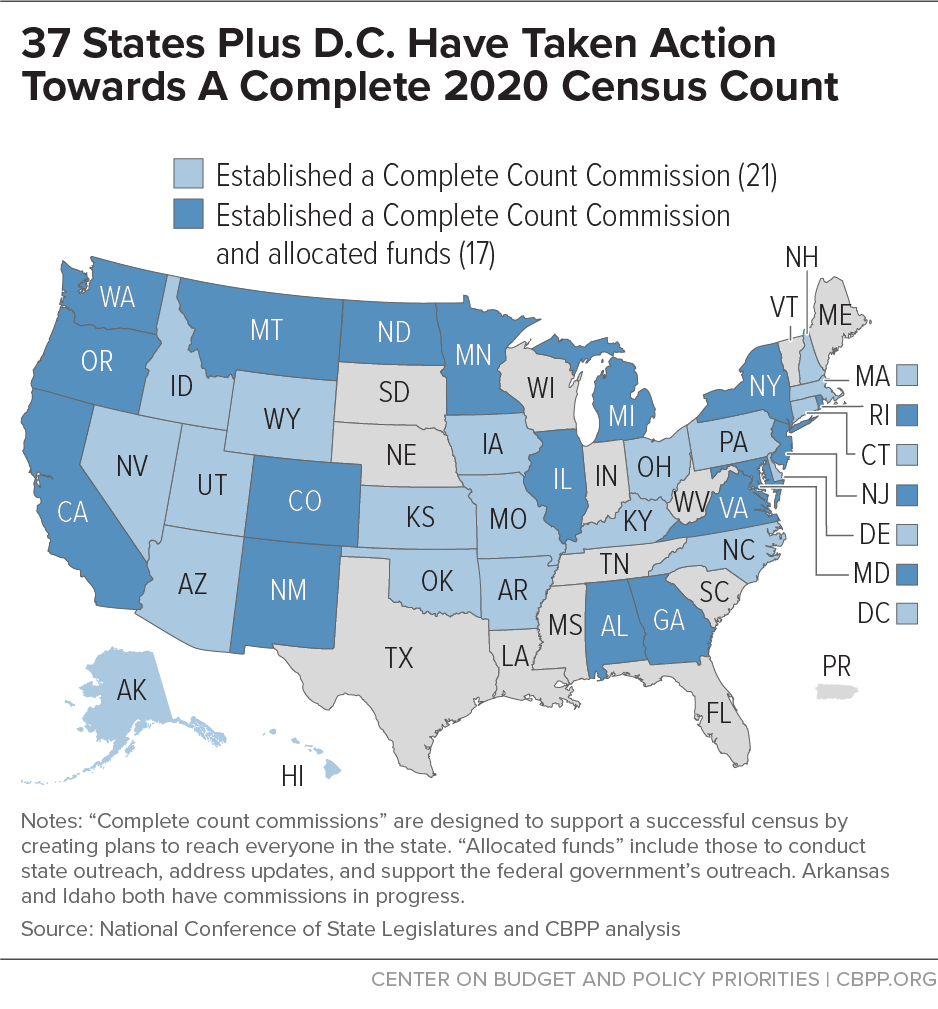BEYOND THE NUMBERS
Update, July 31: we’ve added New Jersey to the list of states that have allocated funds for a complete count commission.
The federal government is responsible for conducting a fair and accurate census every ten years, but that’s in jeopardy for 2020. Years of inadequate and delayed federal funding and the Trump Administration’s failed efforts to add an untested citizenship question to the form threaten to reduce participation. With so much at stake, states should take steps now to help ensure a full and accurate 2020 census count.
Many communities face the risk of not being fully counted, including many people in rural areas; communities of color; young children; people in poverty; immigrants; and LGBTQ people. People in these communities face barriers to participating in the census, such as limited language assistance, limited internet access, and housing instability.
States have much to lose from an inaccurate count, including fair representation in Congress and substantial federal funding. House seats are apportioned based on population and, in 2016, the federal government distributed over $900 billion to states and the District of Columbia through 325 census-guided programs and projects including Medicaid, highway planning and construction, child care assistance, and foster care, according to one recent study.
An undercount could also deny certain communities accurate political representation in state legislatures, and it could leave them without accurate information about where to build schools and roads, and where to make other public investments. Businesses also rely heavily on census data to decide what products to sell and where to expand, and an inaccurate count could deny communities jobs, stores, and other commercial opportunities they could have otherwise received.
The federal government hasn’t done all it can to ensure that the 2020 census counts all communities equally well. Funding for preparations during key planning and preparation years has lagged far below the last three census cycles. Budget cuts also forced Census officials to cancel key tests and outreach, and to open fewer regional and area offices than in 2010.
Further jeopardizing accuracy, the Administration’s attempts to add an untested citizenship question on the census form disrupted Bureau planning. The Supreme Court rejected the Administration’s rationale for adding the question last month, and President Trump has ceased his efforts to make the addition. Nevertheless, publicity around the Administration’s efforts to add the question — especially at this time of charged debate in Washington and around the country over immigration — may make immigrants more fearful of responding to the census.
States can help address these issues and work toward a complete and accurate count by:
- Allocating funding for outreach to all of their residents, with a particular focus on communities that face the risk of not being fully counted. Sixteen states have allocated such funding to date (see map).
- Creating a statewide complete count commission, which coordinates activities to support the count. These commissions create plans to promote census participation, identify “trusted messengers” to conduct community outreach, and create and translate educational materials to supplement the Census Bureau’s communications campaigns. (Outreach funding, as described above, can support commission activities.) Thirty-seven states and the District of Columbia have established commissions so far, and several more are considering it.

